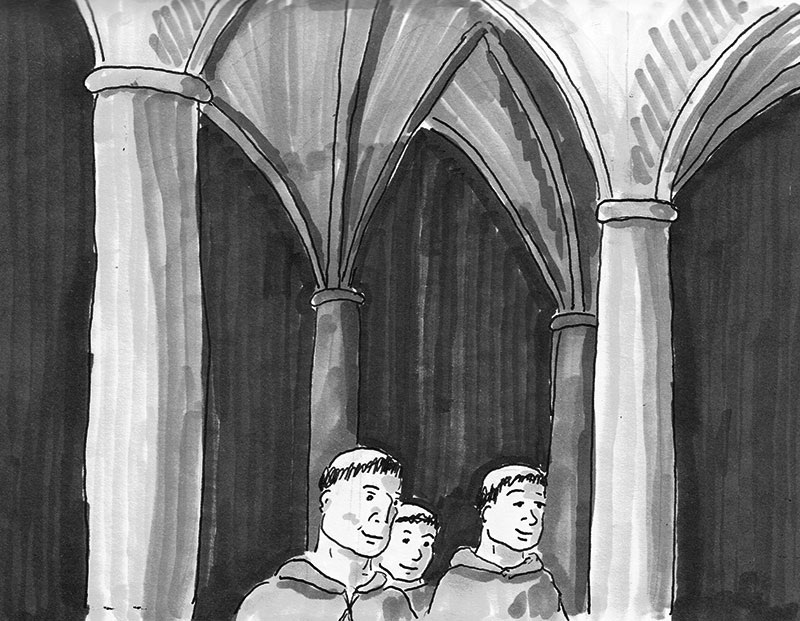Some of that old sacred music splendid. Mercadante: seven last words. Mozart’s twelfth mass: Gloria in that. Those old popes keen on music, on art and statues and pictures of all kinds. Palestrina for example too. They had a gay old time while it lasted. Healthy too, chanting, regular hours, then brew liqueurs. Benedictine. Green Chartreuse. Still, having eunuchs in their choir that was coming it a bit thick. What kind of voice is it? Must be curious to hear after their own strong basses. Connoisseurs. Suppose they wouldn’t feel anything after. Kind of a placid. No worry. Fall into flesh, don’t they? Gluttons, tall, long legs. Who knows? Eunuch. One way out of it.
He saw the priest bend down and kiss the altar and then face about and bless all the people. All crossed themselves and stood up. Mr Bloom glanced about him and then stood up, looking over the risen hats. Stand up at the gospel of course. Then all settled down on their knees again and he sat back quietly in his bench. The priest came down from the altar, holding the thing out from him, and he and the massboy answered each other in Latin. Then the priest knelt down and began to read off a card:
—O God, our refuge and our strength…
annotation:
I thought it would be helpful to link to some videos of the works and composers that Bloom is referencing in this excerpt, so in order:
Mercandante: Seven Last Words,
Mozart: Gloria from the 12th mass
G. P. da Palestrina – Motets for 5 voices
I am continually struck by Blooms struggle between the base impulses of his human nature and the sacred aspirations of humankind. He seems to envy the balance that medieval and renaissance Benedictine monks found. He even seems to envy the eunuchs for their lack of libido. Indicating that he perhaps wishes his carnal desires were not as strong or perhaps not even there.

